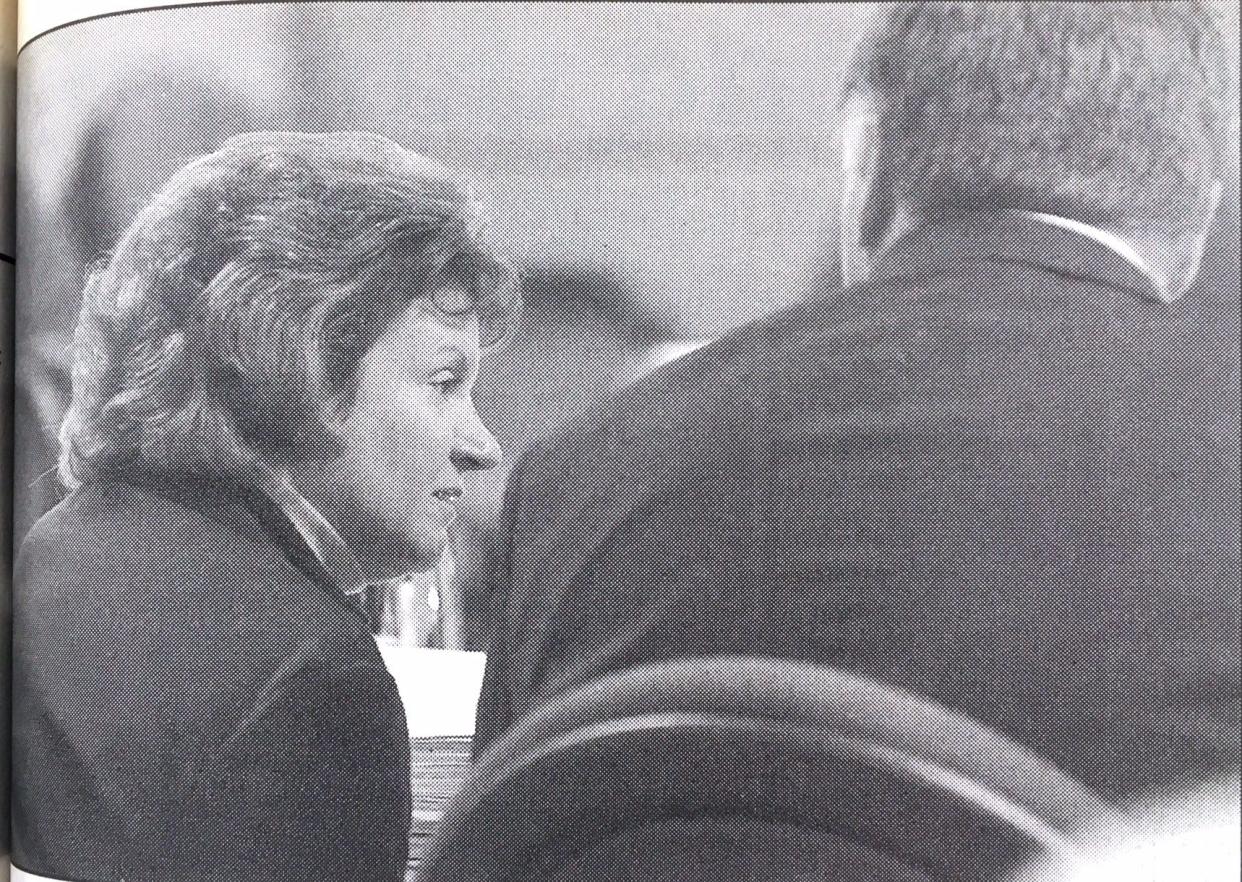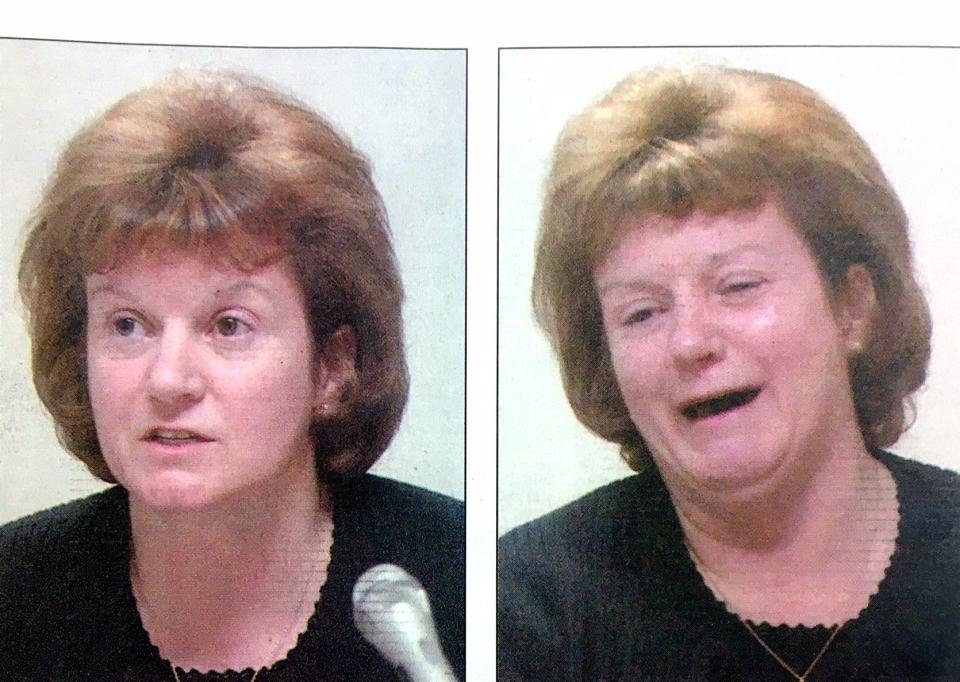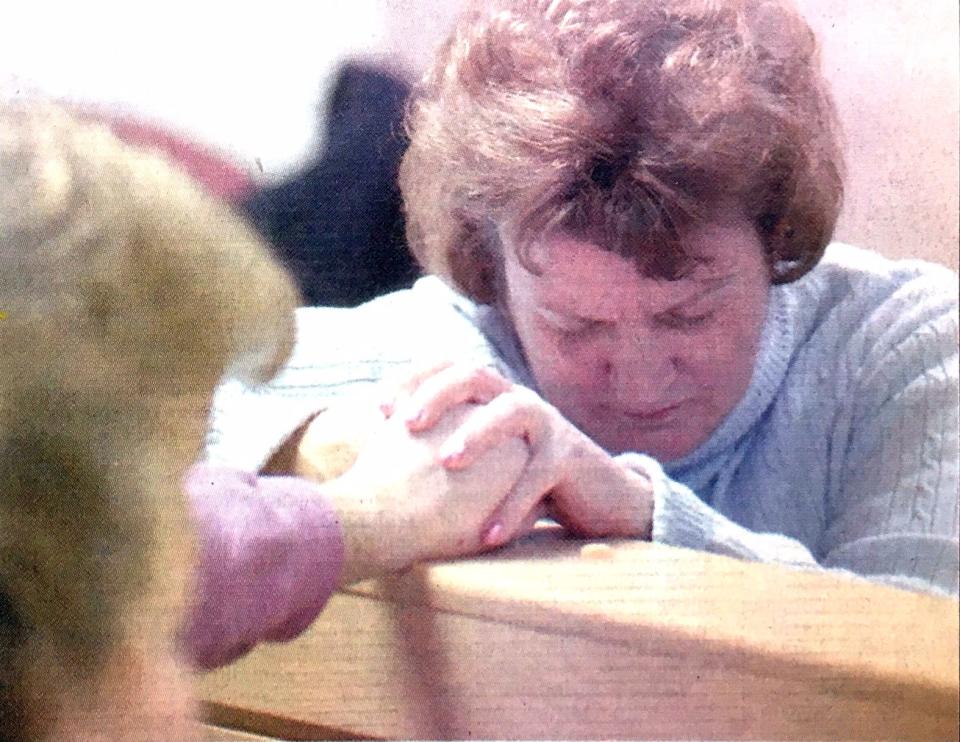Zeeland woman convicted of murdering daughter denied retrial, expected to appeal

ZEELAND — Twenty years after the death of her daughter Robin, Karen Boes — convicted of her murder — has been denied a new trial.
Boes was convicted in 2003 of the murder of 14-year-old Robin, who died of smoke inhalation during a house fire on June 30, 2002. Investigators concluded the fire was started in the hallway outside Robin’s second-floor bedroom with gasoline.
More: Zeeland woman convicted of killing daughter seeking new trial
More: The case of Karen Boes: How much is too much to defend a 20-year-old murder conviction?
Boes was accused and convicted of starting the fire while Robin slept, knowing she was still inside. Two decades later, she continues to insist she's innocent and, in 2021, was aided by the University of Michigan Innocence Clinic in seeking a retrial. Her representatives argue two critical factors — fire science and the psychology of induced false confessions — have advanced since Boes filed a motion for relief in November 2006.
The innocence clinic presented three key arguments:
Since 2006, there's been new consensus about the methods experts in the original investigation used to identify the origin of the fire
One of those experts, John DeHaan, resigned his membership with the American Academy of Forensic Sciences in 2015 after an investigation revealed he acted unethically while giving testimony in another case
Shifts in scientific consensus about false confessions and increased awareness of confirmation bias by law enforcement cast doubt on incriminating statements Boes made while being interrogated
The decision denying Boes a new trial, issued by Judge Karen J. Miedema on Wednesday, April 26, says the new research cited by Boes and the innocence clinic doesn't show there's been a change in fire investigations since 2006 — and, even if it did, it wouldn't affect the outcome.
Boes argues the investigators used char pattern and a process of elimination, referred to as negative corpus, to determine the origin of the fire. But a fire and forensics expert hired by the prosecutor’s office said investigators didn't use negative corpus and relied on more evidence than char pattern alone.
The decision also calls into question the credibility of a report from scientific fire analyst John Lentini provided by Boes. According to the opinion, Lentini left out crucial details, like the fact that a flashover fire was ruled out as the cause of the damage in the hallway and the soot on the bedroom door hinges showed the fire originated there.

“Ample circumstantial evidence about the defendant’s hatred for her daughter, her violent streak toward her daughter, her behavior and comments immediately after and in the weeks following her daughter’s death would remain unchanged at trial," Miedema wrote.
Miedema also wrote, generally, a new trial isn't granted because of new evidence to impeach a witness — referring to DeHaan. She noted DeHaan was a secondary witness to Mike Marquardt, who testified for a full day, while DeHaan testified for a little over half a day.
Miedema also didn't buy the argument about a coerced or false confession. According to Boes' filing, she was first interrogated soon after Robin’s death for eight hours by the Zeeland Police Department. She was interrogated several additional times over the course of the investigation, without a lawyer present.
Boes argued the investigators used tactics known to cause false confessions, like asking her to imagine how she would've set the fire in a dream or if she'd lost her mind and set the fire without knowing it. A report submitted by the defense from James Trainum concluded Boes’ admission contains all of the components that lead to false confessions.

But forensic assessment from Matt DeLisi, who analyzed audio recordings of the interrogations, said the majority of research on false confessions was conducted in the 1990s, making it irrelevant in the Boes case.
DeLisi added Boes didn't possess any of the vulnerabilities associated with false confessions like youth, intellectual disability and intoxication.
On Tuesday, May 9, Ottawa County Prosecutor Lee Fisher gave an update to the Ottawa County Board of Commissioners, since previous commissioners authorized the office to spend $141,400 on an expert witness to argue against a retrial.
“Without these experts, our office would not have been able to effectively respond to the motion and a new trial for Ms. Boes would have been the probable outcome, and that would have been a great expense to the taxpayers of Ottawa County to say the least,” Fisher told commissioners.
“I believed it was important to update the board and the public regarding the outcome of this case, given the large expenditure of funds that was approved by the board of commissioners to hire the experts."
JoEllen Haas, senior assistant prosecuting attorney, told the board they're expecting Boes to file with the Michigan Court of Appeals.
“We will be ready and prepared for whatever it is that the higher courts have for us."
— Contact reporter Tess Ware at tware@petoskeynews.com.
This article originally appeared on The Holland Sentinel: Zeeland woman convicted of murdering daughter denied retrial, expected to appeal

